Now that we’ve taken care of connectivity for all but those in the most remote places, the biggest selling point for internet service is speed. Fast, reliable connections are great for gamers and streamers, and they’re what allows your website to better serve visitors.
But, how much speed do you really need? Is there such a thing as too much, as stated by some who harbor suspicions about the perils of 5G?
Read on to learn everything you need to know about network speed.
The State of Internet Speed in 2020 and Beyond
Lack of speed is at the root of everything from poor SEO to higher bounce rates. In fact, studies show that the average user will leave a website that takes more than three seconds to load.
So, the world is in a race to get up to speed, literally speaking.
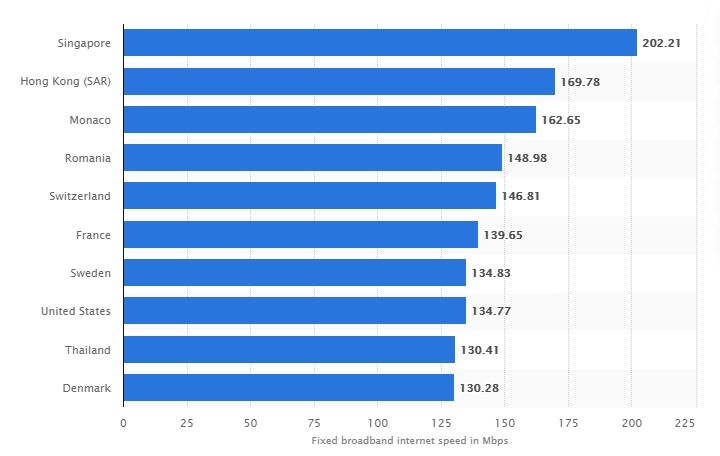
An annual study conducted by Cisco gathered from interesting facts about network speed and connectivity.
Did you know that within the next three years:
* Broadband speeds are expected to double?
* The number of connected devices will be more that three times the total world population?
* 5G networks will comprise about 10 percent of the global networking capabilities?
* The fastest growing machine-to-machine market will be smartphones?
* Mobile network speeds will triple to about 92 Mbps?
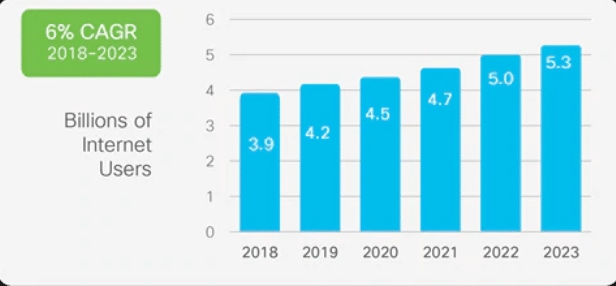
What Affects Internet Speed?
Internet speed seems fickle at times. You could be cruising along the internet superhighway and hit a bump out of nowhere. Things like traffic surges are common, and the number of devices connected to a network at once can slow things down considerably.
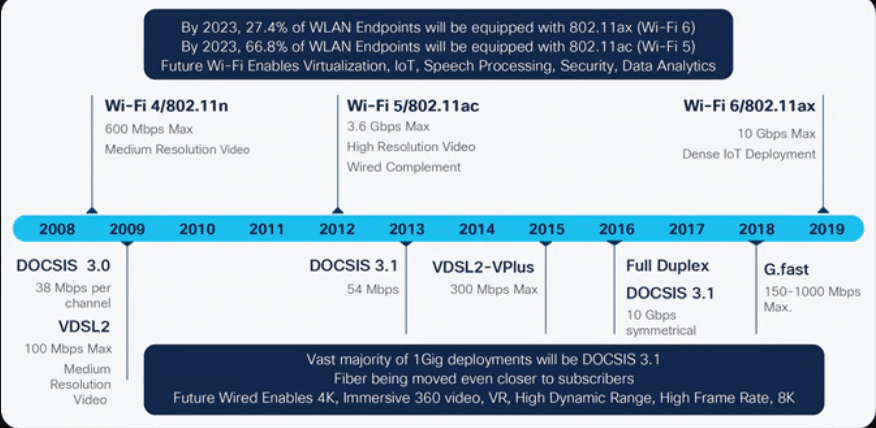
The main factor that determines your network capabilities is bandwidth. The more you have, the more data can travel through your connection. But, things like the type of broadband connection or size and number of data packets traveling through it can reduce throughput and slow you down considerably.
Throughput is the actual amount of data that’s able to travel through your line. Think of a slow broadband connection as the clogged artery of internet connectivity.
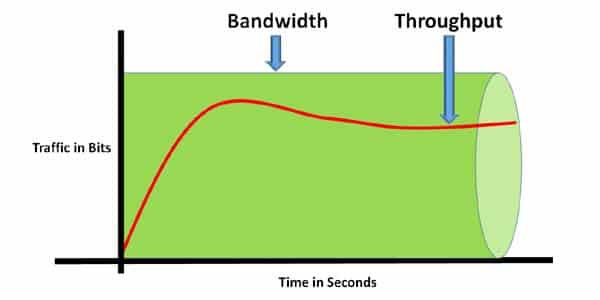
If your service provider promises a high speed connection, and yours isn’t living up to expectations, these are the possible issues:
* Using a wireless connection rather than being hardwired to your network
* Outdated hardware, software, or operating systems
* Too many lines, people, or devices connected to a single network
* Malware and viruses
* Router location, such as having the router on a lower floor with obstructions between the source of the signal and device
* Your browser
* The hosting service powering the website
Even the simple act of installing a VPN can slow your connection by up to 30 percent. However, sometimes security and privacy are more important.
How Much Speed Do You Need?
If all of this information about network connections has your head spinning, here are some guidelines to help you determine how much network speed is necessary for you to meet the demands of your family or business without exceeding your budget.
The speed of your connection depends on your average internet usage. For example, a 125 MB data file will take approximately eight seconds to download with a 1000 Mbps connection.
The typical connection is far slower than that, and you’ll need a higher bandwidth fo many online activities. If you own a website, speed is one of the most important considerations when choosing a hosting platform.
Since most people are using their connections for more than downloading plain text pages, it’s important to find a network that can handle your traffic or activity level.
Most service providers offer a certain bandwidth, which must be shared by all devices on a single account unless you get a sweet deal. That means the typical family with one member watching videos on YouTube and the kids looking up information for school is going to need more bandwidth than a single professional running a freelance website from their home office.
Activities that take up the most bandwidth are streaming content, which takes about 5 Mbps to comfortably watch the average Hollywood blockbuster in high-definition.
In general, you’ll need a connection with these minimum speeds per person, per activity on the network at any given time.
* 1 Mbps: Basic web surfing, checking email, and visiting your social media platform
* 1 – 3 Mbps: Online gaming
* 1 – 4 Mbps, download speed, 1 Mbps upload speed: Video conferencing, Skype, video chat
* 3 – 4 Mbps: Video streaming, standard definition
* 5 – 8 Mbps: Video streaming, high-definition
* 50 Mbps: Downloading large files
It’s important to gauge just how many Mbps you’ll need so that you can choose an affordable data plan that gives you a little leeway, but not so much that you’re paying for services you won’t use.
Basically, you’re looking for plans with the following bandwidth according to the number of connected devices and activity:
* Households and companies with up to two connected devices with average email, video viewing, and social media engagement will need a plan with at least 25 Mbps
* Households and businesses with up to five concurrent connections, 4K streaming, and multiplayer online gaming will need a connection with at least 50 Mbps, but 100 is best
* Households or businesses with more than five connected devices and heavy use will need 150 Mbps or more
Final Thoughts
You don’t have to be an instant gratification junkie to want a speedier internet connection. Between work, education, and entertainment, many of us live our lives online. Faster connections will help you work more efficiently and allow you to enjoy cutting the cord with your cable company once and for all.
We strive to provide readers with the most current news and information about technology that powers our lives. Knowing what to look for in an internet service will allow you to make informed decisions and avoid a lot of hassle.
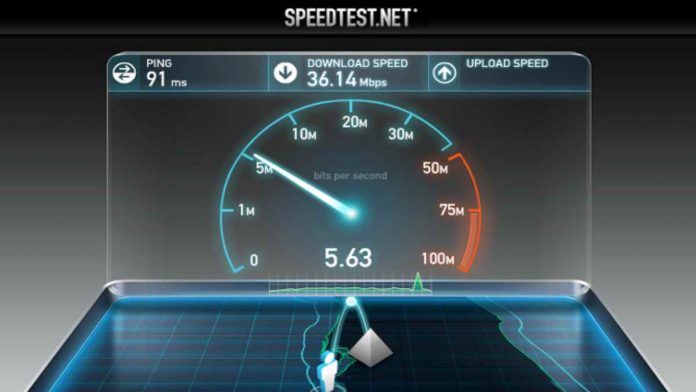
This is terribly written. It takes 1+ second to download 125MB on a 1Gb/s connection, since 125MB=1Gb but also accounting for overheads (requests) and such too can take up to an additional second though if downloading from far.
International p2p bandwidths suck (home to home internationally) at around 4Mb/s+ for good ISPs, 1Mb/s or less for bad ISPs (i actually benched this because i host my own services for my own use)
How much bandwidth one needs depends on what your activities are. If you’re downloading while watching a video while loading a website, 10Mb/s loads a website in 1-2 seconds for heavy websites of 1-2MB in size for that one page, 8Mb/s is needed for 1080p video, and your download will need an arbitrary amount of bandwidth depending on how long but not much if you’re expecting it to take long, ofcourse you didnt mention the need to have QoS to manage all this as well so it works as intended.
One also need loads of uploads. Services cant function if your upload is slow for file syncs, video conferences, etc. More and more people have their own NAS which can be accessed remotely so you do need that upload.